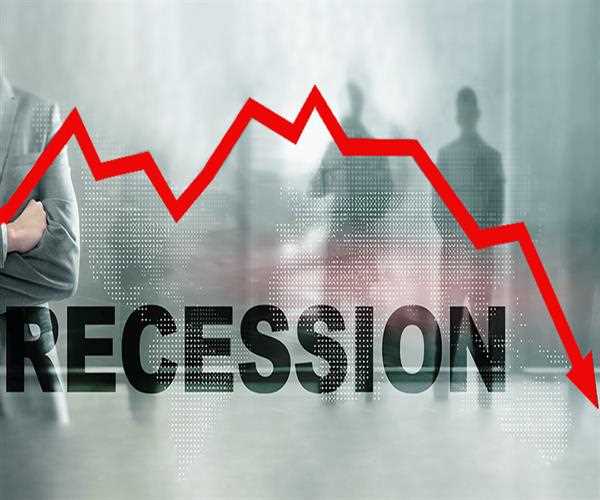What is Recession?
In economics, a Recession is a business cycle contraction when there is a general decline in economic activity. When a recession occurs, people are typically laid off from their jobs and they spend less money. This can lead to a downward spiral in the economy, as businesses make less money and are forced to lay off more workers. In other words, Recession is defined as a significant decline in economic activity spread across the economy, lasting more than a few months. It is characterized by falling gross domestic product (GDP), high unemployment, and a sharp increase in the number of foreclosures and business failures.

Why is everyone in India worried about recession?
The main reason why people are worried about a potential recession in India is because of the country's high levels of debt. India's government debt is estimated to be around $2.6 trillion, which is equal to about 68% of the country's GDP. This is a very high level of debt, and it means that the country would be in a lot of trouble if there was a sudden economic downturn.
Another reason why people are worried about a potential recession in India is because the country's economy is highly dependent on exports. In 2018, exports accounted for about 11% of India's GDP. This means that if there was a sharp decline in global demand for Indian products, it would have a significant impact on the country's economy.
People are also worried about a potential recession in India because of the country's large population. India is the second most populous country in the world, with over 1.3 billion people. This means that even a small slowdown in the country's economy could have a big impact on the lives of millions of people.
The worry about recession in India is largely due to the fact that the country's economy is so intertwined with the global economy. India is a major player in the global economy, and any major economic downturn in the world can have a significant impact on India.
In addition, India has a large population, and a large portion of the population is still living in poverty. If the economy weakens, it could mean more people slipping into poverty.
Finally, India is still a developing country, and its economic growth has been relatively strong in recent years. If the global economy weakens, it could stall India's economic development and lead to more poverty and inequality.
The Indian economy is the world's seventh largest by nominal GDP and the third largest by purchasing power parity (PPP). The country is classified as a newly industrialized country, one of the G-20 major economies, a member of BRICS and a developing economy with an average annual growth rate of approximately 7% over the last two decades. India has the potential to become one of the world's fastest-growing economies in the coming years, with some estimates suggesting that it could even overtake China as the world's largest economy by 2035.
However, despite this strong economic growth, there is a growing concern amongst economists and policymakers about the possibility of a recession in India.
There are a number of factors that have led to this concern
Firstly, there is the global economic environment. The United States, India's largest trading partner, is currently in the midst of an economic slowdown. This has led to a reduction in demand for Indian exports, as well as a decline in foreign investment.
Secondly, there are domestic factors that are also causing concern. The Indian government has been pursuing an ambitious reform agenda, which has led to some disruptions in the economy. For example, the implementation of the Goods and Services Tax (GST) has led to confusion and disruption in the business sector.
Thirdly, there is the issue of Non-Performing Assets (NPA). NPAs are loans that have been taken by banks but not repaid. This is a major problem in India, as it has led to a rise in bad debts and a reduction in the availability of credit.
Fourthly, there is the issue of the Indian rupee. The Indian rupee has been under pressure in recent months, due to a number of factors, including the strengthening of the US dollar and concerns about the Indian economy.
Finally, there is the issue of the fiscal deficit. The fiscal deficit is the difference between the government's total revenue and its total expenditure. The Indian government's fiscal deficit is currently at a three-year high.
All of these factors have led to a growing sense of anxiety amongst economists and policymakers about the possibility of a recession in India. However, it is important to remember that India is still a developing economy, and it is important to keep this in perspective. There are still many challenges that need to be addressed, but the country has the potential to continue to grow at a strong pace in the coming years.